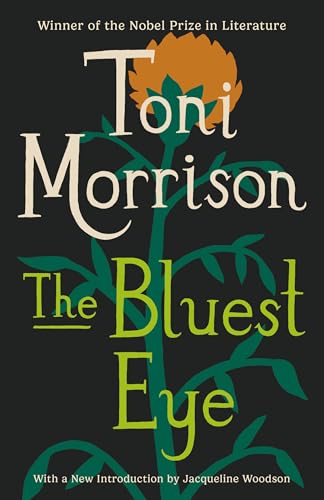The Bluest Eye: A Novel (Vintage International)

In Morrison’s bestselling first novel, Pecola Breedlove—an 11-year-old Black girl in an America whose love for its blond, blue-eyed children can devastate all others—prays for her eyes to turn blue: so that she will be beautiful, so that people will look at her, so that her world will be different. This is the story of the nightmare at the heart of her yearning, and the tragedy of its fulfillment.
BUY THE BOOK
Join a book club that is reading The Bluest Eye: A Novel (Vintage International)!
Community Reviews
What Bookclubbers are saying about this book
✨ Summarized by Bookclubs AI
Readers say *The Bluest Eye* is a powerful, lyrically written debut by Toni Morrison that deeply explores themes of racism, colorism, and identity. Re...
I picked this up to read along with a zoom meeting where multiple female authors are reading parts of the book. It was wonderful!
The book had been on my TBR list for a long time, and listening to other authors read the work was amazing, especially since so many of the women reading were well-established writers and I was a bit star struck.
I would recommend this book.
The book had been on my TBR list for a long time, and listening to other authors read the work was amazing, especially since so many of the women reading were well-established writers and I was a bit star struck.
I would recommend this book.
Incredible book!
Very captivating and boldly written book. It made me pause several times to reflect, a few times I felt sad or disgusted, and at times hopeful. I love it when art and books evoke emotions in me.
When I was 13, as a biracial girl, I remember making an offhand comment about wishing I had inherited a certain feature from my dad. My parents handed me The Bluest Eye. This book didn't just become my favorite — it completely reshaped how I viewed the beauty of persons, things, and all that the eye can see.
For years, I called this book "powerful," but now I think it's more dangerous than just powerful. The first few times I read it, I thought I had learned something deep: "don't bully people who are different," "be kind," "see the humanity in others." I felt proud of myself, like I was wise and compassionate for getting the message. But the truth is, I had never been in Pecola's shoes. I was reading from privilege — the privilege of being biracial in a world that sometimes put me closer to Eurocentric beauty standards than Pecola ever could be. So at first, I only felt sympathy for her. I blamed the world for being cruel, but I didn't see myself as part of it.
It took rereading as I grew older to realize how much I had internalized those same Eurocentric standards for myself. That there was a part of me — and this was the hardest truth to face — that felt relieved I wasn't "as ugly as Pecola." And that makes this book dangerous: it forces you to see that you're not outside the system, but woven into it. I wasn't just someone feeling sorry for Pecola, I was complicit. By valuing beauty the way society defines it, I had been the bully too — to her, to others, and to myself.
Because the truth Morrison uncovers is this: all of us are Pecola on someone's scale of beauty. We all measure ourselves against a standard we didn't create, attaching value not to character but how well we fit that scale. And by doing that, we participate in the very system that breaks Pecola. That breaks us.
But here's what keeps me returning to this book: Morrison doesn't just expose the ugliness, she gives us a chance to unlearn it. To stop attaching our worth — or anyone else's — to a scale that was never ours to begin with. And maybe that's the hardest, most necessary act of kindness: to see beauty differently, in our actions than in our bodies, to see it truthfully, to see it everywhere and in everyone.
Got damn.
See why thousands of readers are using Bookclubs to stay connected.